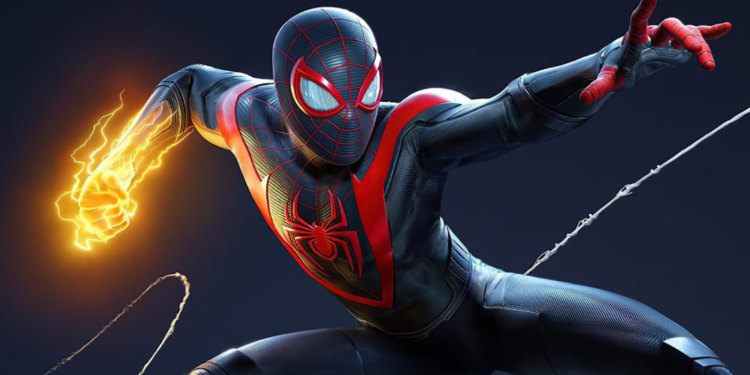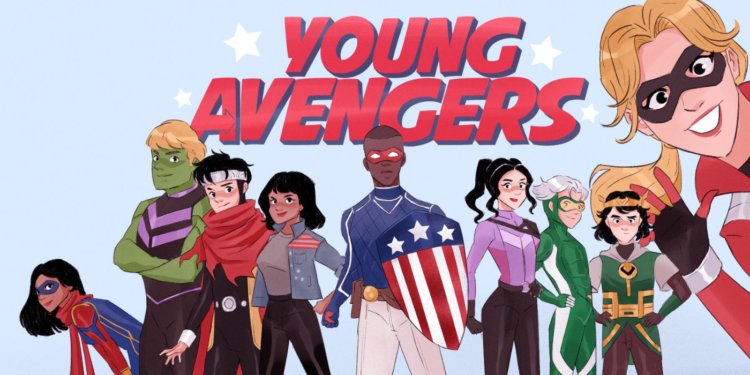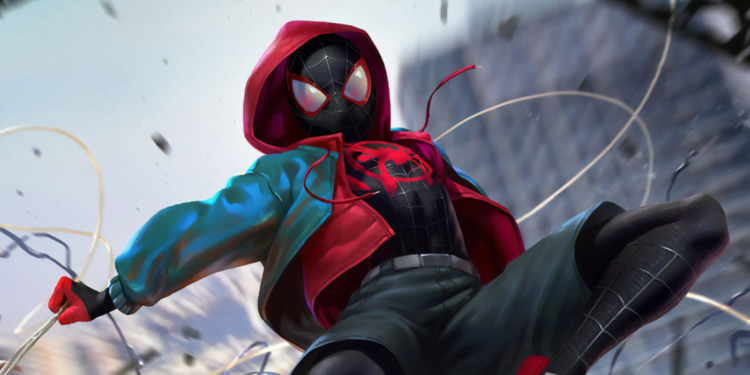With Spider-Man: Across The Spider-Verse, the world has been introduced to a universe full of different spider-people. Sulking Spider-Man Noir, the effortlessly cool Spider-Punk, and more animal/spider hybrids than anyone can shake a web at fill the screen. However, the primary POV character is one of the first variant spiders, Miles Morales.
Before Phil Lord and Chris Miller of Clone High “fame” gave Morales such a huge platform, the idea of anyone other than Peter Parker being Spider-Man was highly controversial. Marvel has always been on the forefront of making comics more inclusive (even if the films are just starting to catch up), creating heroes like Storm and Luke Cage, and later allowing different characters to take up Captain America’s shield or Iron Man’s suit. But adding more diversity to Spider-Man is a tricky proposition. Where Ghost Rider or Thor are as much a mantle as a character, Peter Parker is the one who got bit by the spider, he can’t just hand over the name to someone else. This is where Marvel had to get creative.
Your Friendly Brooklyn Spider-Man
Marvel has played around with the concept of the Multiverse many times before, but usually used it to explore different aspects or variations of a single character, like seeing what would happen to a character’s arc if they’d made different decisions. But this was also a perfect vehicle to take a hero who can’t easily be divorced from their alter ego and give the character a new origin. This is where Miles Morales first broke onto the scene in 2011.
When Norman Osborn is arrested by S.H.I.E.L.D. and Peter Parker and revealed as the Green Goblin, a thief decides to take the opportunity to raid Osborn’s labs. While there, a spider modified with Osborn’s Goblin Formula crawled into his bag. Miles goes to visit his uncle Aaron, not realizing that Aaron is the thief. The spider escapes and bites Miles Morales, granting him powers just like Parker. Well, almost just like.
Miles Morales’ Spider Powers

Just as Miles is a Brooklyn native to Peter’s Manhattan, they’re both spider heroes but with slightly different abilities. Miles recovered from his spider bite to discover he had increased strength, agility, and stamina. After a little bit of experimentation, he also found he had wall crawling and the enhanced perception of Spider Senses. All of this would serve him well as he swung through the skyline of Brooklyn (though just like Peter, he would need wrist mounted tech to create Spider-Man’s famous webs).
While this is where Peter Parker’s powers stop, Miles Morales ended up with a few extras on top. Osborne’s spider had been enhanced with a mutagen granting it active camouflage. This meant that Miles could effectively turn invisible at will. In addition, he gained the ability to manipulate electricity, although the comics refer to it as “venom blast” (possibly in an attempt to distance him from the growing trend of black characters with electricity powers).
The largest similarity between the two, though, is in their personality and values. If there’s one thing readers know about Peter Parker’s morality, it’s the mantra often uttered by his Uncle Ben: “With great power comes great responsibility.” And the moment he gained spider powers of his own and began working with Peter, Miles took to it. The mentorship, however, was sadly short-lived. Green Goblin escaped from prison and threatened Peter’s family, killing Peter in the process. Miles arrived and was able to protect them, but not soon enough to save Peter. In what would become a common theme among Spider heroes, Miles was wracked with guilt in being unable to save his mentor.
A New Era of Diverse Heroes

While Miles’ comic run was a near instant success, it didn’t come without controversy. A certain set of comic fans were upset at Miles “replacing” Peter, a character they’d come to love. But the plan had never been for the new Spider-Man to be a permanent replacement. The variant world Miles came from, Earth 1610, was destroyed in a multiversal event, and Miles was transported to the main marvel universe, Earth 616, where he joined Peter in keeping the streets of New York safe (in their own respective boroughs, of course).
It didn’t take long for Miles’ success to reach the head editors. Readers had spoken, and they wanted more diverse characters like Miles. So Marvel gave it to them, releasing Kamala Khan, Moon Girl, America Chavez, Amadeus Cho, IronHeart, and dozens of others. And with the record-breaking success of Spider-Man: Across The Spider-Verse, his influence is likely to continue for years to come.

